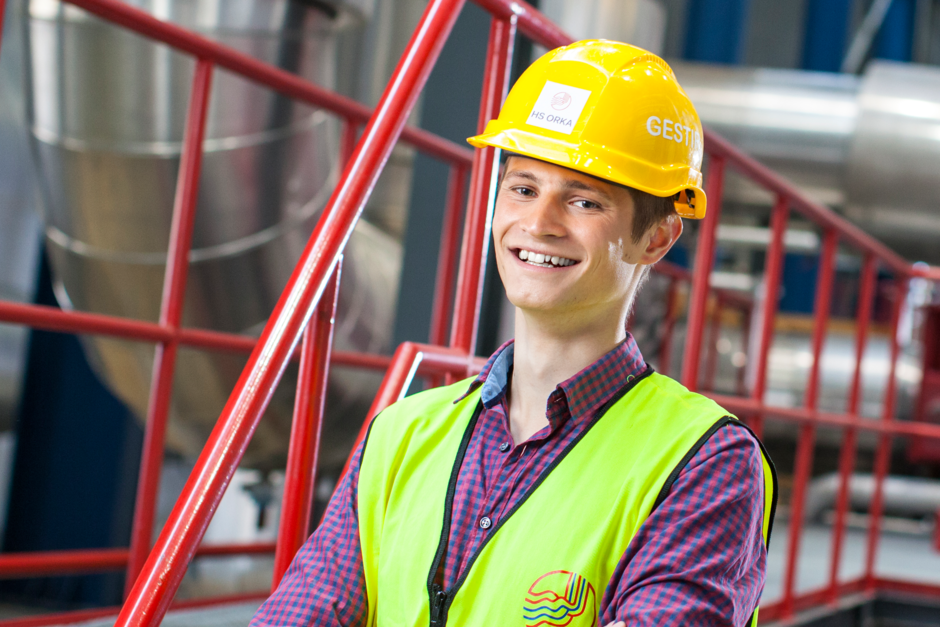Fritz Steingrube, Germany
Former student intern at BMWi
Name: Fritz Steingrube
Age: 24
Hometown: Greifswald, Germany
Academic Background: B.Sc. in European Public Administration, Universiteit Twente, Netherlands
Major & Class: Sustainable Energy, Class of 2017
With whom did you intern?
I interned in the Federal Ministry for Economic Affairs and Energy (BMWi).
How did you find your internship opportunity?
Since finishing my undergraduate degree in European Public Administration, I had kept a close eye on how I would be able to fit an internship with the BMWi into my schedule.
What project did you work on in your internship?
I was part of a small division in the energy department that was tasked with maintaining up-to-date information on new trends in the energy sector, and in particular the electricity grid. My tasks included mostly researching and assembling detailed reports on various issues both current and prospective.
The main focus of my work was on two issues: The financing of the transmission grid infrastructure through tariffs and ways to mitigate the rising costs of grid expansion through these instruments. I also looked at the role of the Blockchain (yup – the bitcoin transaction-protocol) for the future of the energy sector (think peer-to-peer trading, energy-independence solutions, certificate-trading and proof-of-ownership).
As part of the division I also occasionally represented them at several different meetings, conferences and other events. Examples would be Californian ISO experts coming in to talk about their experiences with nodal pricing in electricity markets or the presentation of a study on the effects of decentralization of generation for the entire energy sector.
What did you enjoy the most?
I genuinely enjoyed the look behind the scenes of the German energy sector: How are decisions actually made, how does day-to-day politics play into this, how do interest groups and lobbyists affect the decisions… etc.
The events I was able to attend simply because of my e-mail address were worth it. The BMWi acted as a door-opener for a lot of things I otherwise would not have had the time nor opportunity to attend. And of course, house-internal meetings were extremely interesting.
What were your biggest challenges?
Working in my native language. Honestly, that was the biggest challenge – having never worked in professional German before, I had to get used to the rather stiff style of German bureaucrats. Also shifting my productive phases forward by roughly three to four hours was a bit of a challenge early on.
How did this internship help your career?
It added much needed work experience to my CV. It drastically changed my view of the energy industry, showed me new facets and allowed me to broaden my horizon. Through the events I was able to add a few key people to my personal network. I have gained a better understanding for where to look for information for specific issues that may be extremely useful later on.
How did it compliment your studies at ISE?
It was a bit outside the general ISE curriculum if I am being honest. But that's mostly because the policy aspect of energy issues was not as prominent in the past. I was actually able to convert one of my intern-projects into a term-paper for a course I attended remotely. I should probably add though that I did this internship while also working on my master's thesis, so there was not a lot of ISE related studies going on that could benefit from my newly obtained pieces of wisdom.
What advice do you have for future students?
Europeans: If you are heading to Europe, check with the IO if you are eligible for an Erasmus+ scholarship. There's ample of free EU-money that would otherwise not be used and then no longer available in the future.
Also, do not – I repeat – DO NOT intern somewhere and simultaneously write your thesis about something completely unrelated.
Finally, if you get the chance to intern anywhere that might sound interesting – do it. Especially if it could turn into a potential Master's thesis and possibly a job afterwards. And prepare an Iceland presentation if you can. It will save you a good deal of hassle if you have something ready to go.

